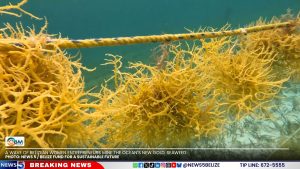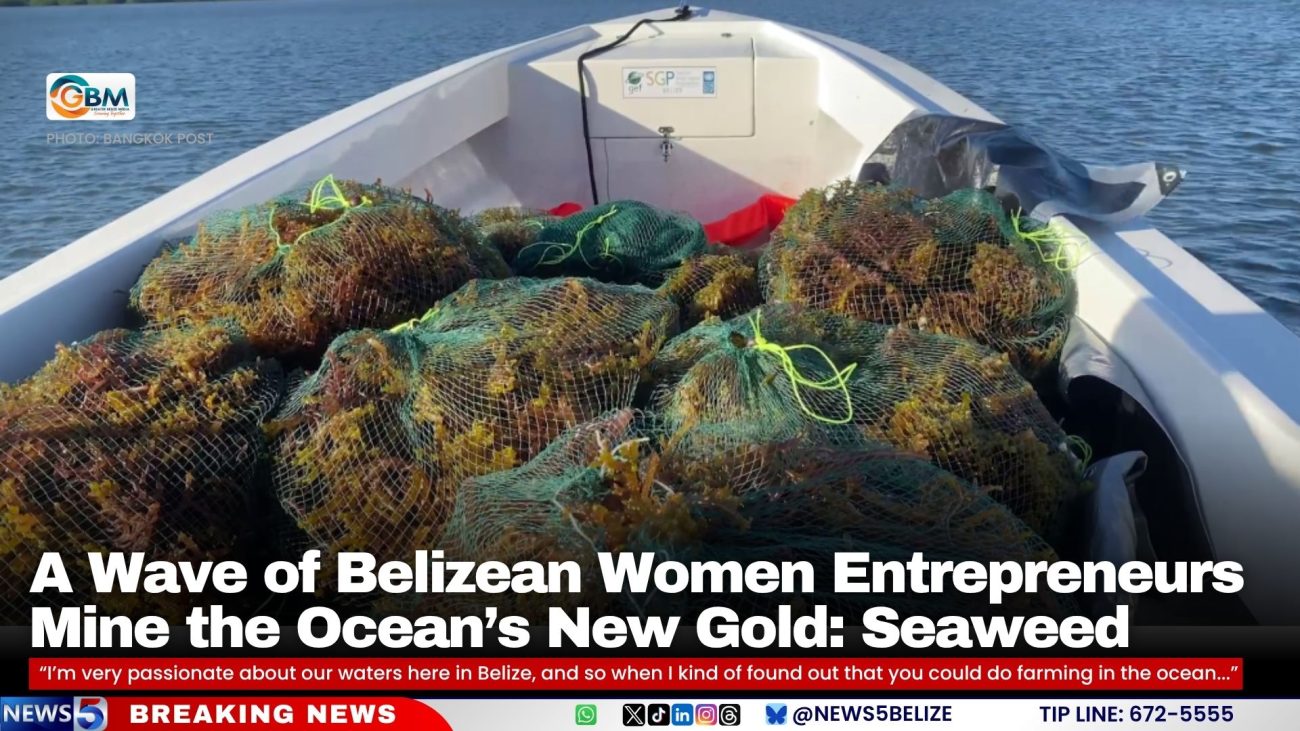A Wave of Belizean Women Entrepreneurs Mine the Ocean’s New Gold: Seaweed
It may not shimmer like gold or sparkle like gemstones, but just off the coast of southern Belize, seaweed is fueling a wave of opportunities. In Placencia Village, women standing waist-deep in the water are turning ocean farming into a livelihood, a business, and a movement. They are redefining what it means to work with the sea, not just in it.
Seaweed farming is not new to Belize, but it’s gaining fresh momentum with the Belize Women’s Seaweed Farmers Association. Since 2019, the association has been growing more than just seaweed. They are cultivating an industry and have turned locally farmed Eucheuma into valuable products like seaweed gel and powder, used in foods, cosmetics, and natural skincare.

“I’m very passionate about our waters here in Belize, and so when I kind of found out that you could do farming in the ocean, that’s for me, personally, kind of where it sparked, like, an interest, you know. Something that you could farm in the ocean, in the environment where I always felt comfortable and happy,” said Jalima Gold, the association’s president.
The movement is supported by the Belize Fund for a Sustainable Future through the Blue Bond initiative, which has committed to protecting 30 percent of Belize’s marine territory. Among those driving this conservation effort are women like Alisha Westby, who joined the association after learning about it from Jalima Gold.

Wesby Westby, founder of Natural Goddess Scrub, is exploring seaweed’s potential in skincare. “I plan to start making seaweed-based soaps to go alongside my scrubs that I will eventually, hopefully, get the science for to narrow down how to make them to my all-natural, oil-based sugar scrubs,” Westby said.
The seaweed being farmed is primarily two types of red algae: the Kappaphycus alvarezii and Euchumatopsis isiformis. These types are used to produce high-value products like gel and powder. Rich in nutrients such as protein, fiber, omega-3s, and vitamin C, the plant is also the base for natural thickening agents in foods and cosmetics.
For artisan soapmaker Dawn Dean, who works with the women to develop new blends, there’s plenty of potential. “Their plan is to use seaweed in all of the soaps that they make,” she said. “Sometimes in Belize, as small business owners, as entrepreneurs, we are reluctant to share our knowledge about how we create what we create. But I personally believe that there is space in the industry.”
Seaweed farming, though, is not just about product development. It’s about progress. Many of the women involved are breaking barriers in traditionally male-dominated maritime industries and are serving as role models for girls who dream of captaining boats or studying marine science.

“It’s very important for us to start pushing boundaries and kind of breaking those barriers for other young females, young women, and little girls to feel like they have a safe space, and it’s something that if they’re interested in or if they’re passionate about, they can go forward and do that,” Gold said.






Facebook Comments